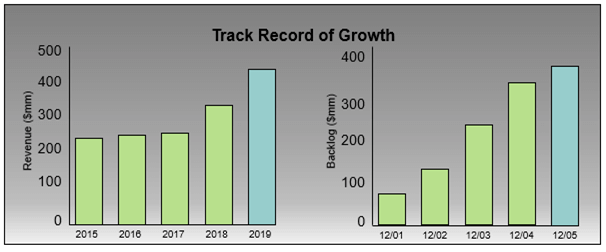Supplier development is a long-term collaborative effort between suppliers and the buying organization to generate new competencies in suppliers. Both parties can gain benefits from this development program but there are also many challenges faced by the buyer.
Table of Contents
Knowing Suppliers Beforehand
It is good to know your supplier beforehand, this will help to build a strong and long-term relationship. By going through your supplier current and past projects you can seek evidence of good performance and also ensure suppliers comply with the laws and regulations.

Supplier Capability Assessment
Assessing supplier capabilities can help to recognize their base capabilities, efficiency and system gaps. Supplier management capability will give you an overview of supplier vision for the business and their future commitments.
Checking on supplier financial stability will help to reduce financial loss and reputational impact to the organization. Evaluating supplier technical capability help to ensure their competency in new products development. Assessing supplier manufacturing capacity to ensure they have the ability to fulfil your orders.
Evaluating Supplier Risk
Identify suppliers who posed the greatest risk to the organization’s brand, regulatory compliance and will disrupt the operations if their deliveries are interrupted. There are four effective risk mitigation strategies you can implement, accepting, avoiding, reducing and transferring. Pick the most desired strategy for your organization and set up a process to implement the solution. This process should be constantly revisited to determine the effectiveness of the solution. If the process is not effective you should come up with another solution, this should be repeated until you find the right solution.
Improving Supplier Quality Performance
Conducting a quality audit on your supplier will be effective in increasing quality levels, lowering quality cost which will result in overall production performance improvement. You will need to develop a plan and come up with a checklist to determine the quality criteria to be audited. In the event noncompliance or non conformance is detected in the audit, both parties should decide on the actions to be taken to prevent future occurrence.
Improving Communication with Suppliers
Effective communication is an important tool at all levels of an organization to achieve efficiency and establish good working relationships. Poor communication results in frustration for both parties.

The most common miscommunication is wrong message being relay through multiple individuals. It is important to appoint a key contact person to liaise with your supplier, this will help to minimize wrong information being conveyed. Be clear and concise about your requirements so supplier know what is expected of them. Calling or meeting your supplier constantly is another way to bring your relationship closer.
Suppliers might have questions regarding your RFQ or they need clarifications on the material you require, you will need to be responsive when they have questions. Be straightforward, honest and transparent with supplier about your requirement and process will help to create trust and understanding between both parties. Supplier might have more knowledge of better material for your products, listen when they provide feedback, it might help to develop better quality finished product and achieve higher customer satisfaction.
Educating Suppliers through Training
Suppliers need to clearly understand what the organization wants before they can deliver quality products. Organizations can create a platform with a strong knowledge base to educate suppliers on their organization’s processes. Another way is to provide onsite training, this can help to ensure supplier is adhering to the organization’s standards. This will gain more of the supplier’s trust and might accelerate development of new products.
Developing New Product with Suppliers
Early Supplier Involvement (ESI) occurs when your organisation includes a strategic supplier in the early stage of product development. Analyze if incorporating supplier in new products development will bring substantial changes in financial returns or better efficiency in product performance. Sharing your design tips, technical requirements and technologies can help to stimulate supplier creativity. Include your engineering team and get them to work with your suppliers will help to accelerate the development process and minimize noncompliance or nonconformance.
Improving Supplier Process Visibility
Getting supplier to invest in an ERP system can help to ensure total visibility from receiving of purchase order to issuing of invoice. This will significantly increase supplier efficiency and speed up time to market. Better transparency in the process will also help to improve buyer-supplier collaboration.
Keeping Suppliers Motivated
Offering supplier bigger and long-term contract is a good way of showing them recognition, business is about getting more orders and making good profits. When suppliers show results of good performance, you can reward them by listing them as a preferred supplier or reduce the inspections if their product quality is consistent. To ensure both parties are making money from the business, the price you offered should be reasonable.
The full content is only visible to SIPMM members
Already a member? Please Login to continue reading.
References
Jacqueline Whitmore. (2016). “5 Ways to overcome cultural barriers at work” Retrieved from https://www.entrepreneur.com/article/276998, accessed 04/09/2020.
Kevin Lee. (2020). “How To Keep Your Supplier Motivated”. Retrieved from https://www.globalfromasia.com/motivating-suppliers,accessed 03/09/2020.
Linda Zhang, DPSM. (2020). “Essential Factors for Supplier Selection”. Retrieved from SIPMM: https://publication.sipmm.edu.sg/essential-factors-successful-supplier-selection,accessed 04/09/2020.
Michael Callaghan. (2018). “How to avoid contractual dispute”. Retrieved from https://www.geppsolicitors.co.uk/site/blog/dispute_ligitation_law/how-to-avoid-contractual-disputes, accessed 04/09/2020.
Nurazyyati Jaffar, ADPSM. (2018). “Key Strategies to Build an Effective Supplier Relationship Management”. Retrieved from : https://publication.sipmm.edu.sg/key-strategies-build-effective-supplier-relationship-management, accessed 05/09/2020.
Yemi Faleti. (2017). “The Importance of Effective Communication”. Retrieved from https://www.stevenson.edu/online/about-us/news/importance-effective-communication, accessed 04/09/2020.

